 Petzlover
Petzlover Cheetoh is originated from United States but Korat is originated from Thailand. Both Cheetoh and Korat are having almost same weight. Both Cheetoh and Korat has almost same life span. Both Cheetoh and Korat has same litter size. Both Cheetoh and Korat requires Low Maintenance.
Cheetoh is originated from United States but Korat is originated from Thailand. Both Cheetoh and Korat are having almost same weight. Both Cheetoh and Korat has almost same life span. Both Cheetoh and Korat has same litter size. Both Cheetoh and Korat requires Low Maintenance.
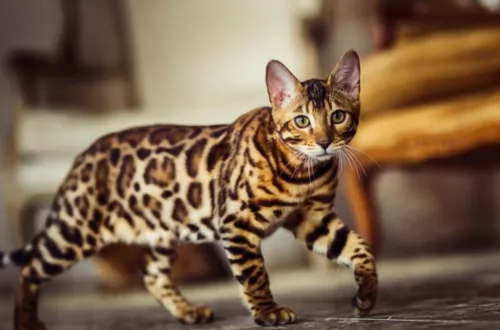 The Cheetoh is a beautiful cat whose parent breeds are the Ocicat and the Bengal.
The Cheetoh is a beautiful cat whose parent breeds are the Ocicat and the Bengal.
It was in 2001 that these two breeds were crossed by breeder Carol Drymon. Drymon was wanting to develop a new cat that would have characteristics similar to that of a wild cat but that would behave like a domesticated cat.
The Cheetoh became a recognized and registered breed with the United Feline Organization in November of 2004.
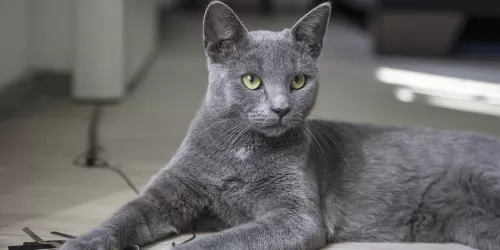 The Korat cat is a breed of domestic cat. He is a natural breed and originates from Phimai in Thailand.
The Korat cat is a breed of domestic cat. He is a natural breed and originates from Phimai in Thailand.
It is thought that the cat is named after its province of origin – Nakhon Ratchasima Province which is actually called Korat by the Thai people.
The cat is also known as the ‘Good Luck’ cat. The cats first appeared in Britain under the name Blue Siamese and later in the United States in the 1950s.
It was in 1959 that a cattery started with breeding and in 1966 the Korat was accepted into championship status.
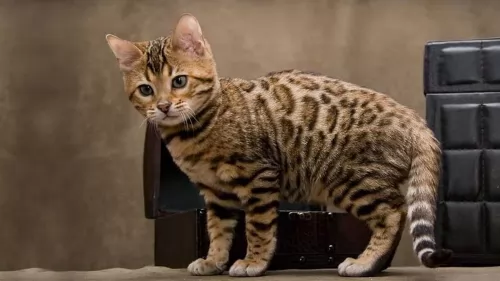 For a housecat, the Cheetoh is a muscular and large breed. In fact, this is one of the largest breeds of all the domesticated cats, with males being bigger than females. They can weigh anything between 7 and 10kg.
For a housecat, the Cheetoh is a muscular and large breed. In fact, this is one of the largest breeds of all the domesticated cats, with males being bigger than females. They can weigh anything between 7 and 10kg.
People want to own an animal that looks like a wild cat and the Cheetoh looks like a Cheetah. The coat of the cat can be several different colors and can be in different patterns with spots and stripes. He gets the spots from both the parent cats - the Ocicat and the Bengal. He definitely getd the longer legs from the Ocicat.
The purpose of the Cheetoh breeding program was to create an exotic, intelligent cat with a wild look and that would also be larger than your regular domestic cat. You could say it's the cats wonderfully soft, a velvety coat that makes it such an attractive cat.
Also, another notable feature with the cat is the way it walks - it looks as though it is stalking and prowling.
The cats are bred in 6 colors referred to as the black- or brown-spotted sienna, the black-spotted smoke the black- or brown-spotted gold, the black-spotted silver and the gold-spotted.
Your fascinating Cheetoh is a fun-loving cat, being playful and energetic and he will require a large yard and require being exercised.
They’re gentle cats but are talkative, being quietly friendly and social.
They make great family pets. They become devoted to their human family, being loyal and companionable. He is an affectionate, loving cat and his intelligence allows him to learn some simple commands and tricks.
He is the kind of cat that will do well in a family with kids and pets as he loves playfulness and fun, but he also wants to receive lots of love and attention.
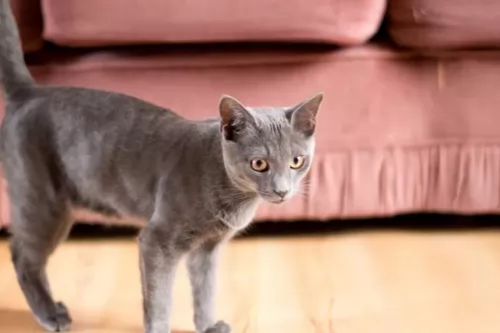 The Korat is a short-haired, single coated cat breed that has a small to medium build. He stands at about 25 – 30cm in height.
The Korat is a short-haired, single coated cat breed that has a small to medium build. He stands at about 25 – 30cm in height.
He weighs about 3 to 5kg. He is known for his large, beautiful green eyes. It’s a beautiful blue-grey cat with unusual coloring - a shimmering silver-tipped blue that the Thai people refer to as ‘rain-cloud grey’.
With his silver-tipped blue-grey coat and large green eyes, this is indeed a beautiful cat.
The Korat is a friendly cat and can get along well with children who have been taught to be kind to animals and to respect them.
They’re also cats that like to make friends with other pets in the family. They also enjoy the companionship of their human family. They’re intelligent cats too and you won’t have trouble teaching him a trick or two.
He doesn’t want to be left alone and if you work full-day, it would be best to get such a cat another cat companion. He isn’t a noisy cat but fairly quiet, enjoying a quiet environment.
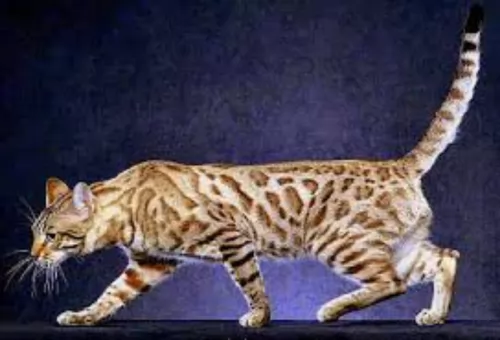 Cheetohs are a wonderful breed of cat and will love a busy household of adult humans, kids, and other pets.
Cheetohs are a wonderful breed of cat and will love a busy household of adult humans, kids, and other pets.
Remember that because of their wild side they have a high prey instinct and might like the idea of going after your small pets such as fish and birds.
Intelligent and playful you will need to keep your Cheetoh entertained and exercised with both mentally and physically stimulating puzzle-type games. One thing is for sure, with a Cheetoh in your home, you're never going to have a dull moment.
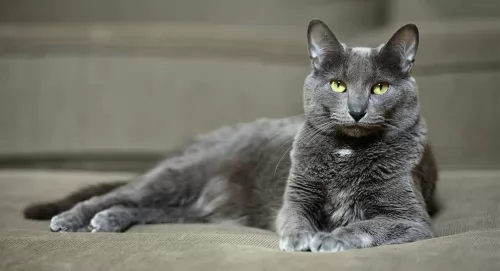 Think carefully before you take a cat into your life. If you are hardly ever at home, some cat breeds are very social, and this quiet, solitary lifestyle will be detrimental to their health.
Think carefully before you take a cat into your life. If you are hardly ever at home, some cat breeds are very social, and this quiet, solitary lifestyle will be detrimental to their health.
If you aren’t willing to learn what the nature of a cat is, your cat will be unhappy and you’ll spend a lot on vet’s fees as his immune system will be compromised.
It would be most unkind to take a Korat cat into your home and not understand something of its behavior. A cat such as the Korat thrives on plenty of love and attention.
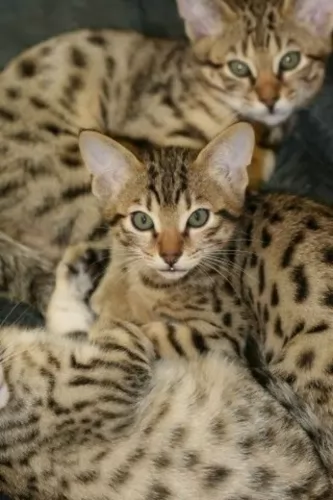 Whenever you buy a pet, particularly an exotic type of pet where you’ve spent a lot of money, make sure to check out potential health issues from the breeders.
Whenever you buy a pet, particularly an exotic type of pet where you’ve spent a lot of money, make sure to check out potential health issues from the breeders.
Always make sure to buy your cat from a reputable source to avoid health issues that could drastically shorten your Cheetoh cat’s life.
As with all cats, there are potential genetic problems in their ancestry that might reveal itself in your cat.
Certainly, if you suspect something is wrong, get your cat to the vet immediately.
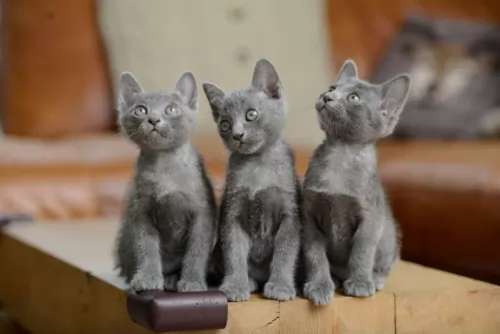 The Korat is generally healthy but even so, there are always one or two cat ailments that need to be sorted out.
The Korat is generally healthy but even so, there are always one or two cat ailments that need to be sorted out.
If your Korat cat succumbs to any one of the common cat illness there are, get veterinary help. These illnesses can be cancer, feline leukemia virus, diabetes and heartworm among others.
Feline Lower Urinary Tract Disease (FLUTD) can be found in male and female cats, often occurring in cats that are overweight or stressed.
Your cat will strain to urinate, may vomit, will have a lack of appetite, lick around the urinary area, and be most miserable. The problem is regarded as an emergency and you need to get your cat to the vet as soon as possible.
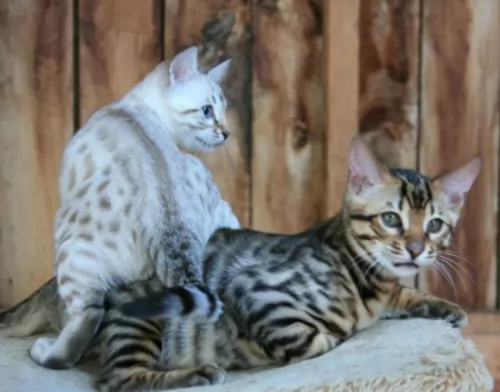 Although the Cheetoh is considered to be a hypoallergenic cat, no cat is really so, but nonetheless the coat is lovely and velvety and is shiny and short, being low shedding as well.
Although the Cheetoh is considered to be a hypoallergenic cat, no cat is really so, but nonetheless the coat is lovely and velvety and is shiny and short, being low shedding as well.
He will need lots of exercise, but luckily with his dog-like attributes, he can be taught to walk on a leash,
Ensure your cat has a nice dry, warm sleeping area.
These are energetic cats and he will need a complete commercially manufactured cat food that is high in protein, after all this is a carnivore and they require meaty diets.
If in any kind of doubt as to what to feed your Cheetoh, speak with your veterinarian if you have any concerns.
Make sure that your cat is never without a constant supply of fresh, cool water. A water fountain, with moving water, always encourages water drinking with cats.
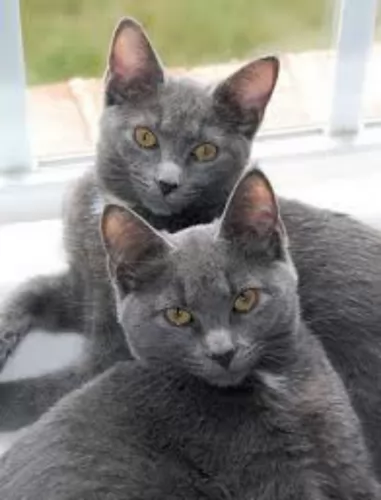 The Korat’s short single coat requires little grooming. You can brush it once a week to remove shed hairs.
The Korat’s short single coat requires little grooming. You can brush it once a week to remove shed hairs.
Trim the nails when they become too long.
Check your cat's eyes and make sure they’re still bright and clear.
Check the ears when you brush your cat and look out for signs of redness which could indicate an infection. Pet groomers or your vet can show you how to groom your cat or you can take your pet to the pet groomers.
Provide your cat with a litter box and keep it spotlessly clean. Remove the feces every single day. The litter will also need to be changed periodically.
Have your cat neutered or spayed.
Vaccinate against the major cat illness.
A good diet is essential for good health, and in fact, a cat’s food needs to be adapted to the different seasons of a cat’s life.
Cats are carnivores and they require nutrients from animal products. They need a mix of vitamins, fatty acids, minerals, and amino acids.
There are excellent commercial cat foods on the market, whether it be dry food, semi-moist food or wet food. These foods have been made to give your cat the right balance of nutrients.
In choosing cat food, it is important to consider your pet’s age and energy levels and it is also important to read the ingredients list. Look for foods in which meat is at the top of the ingredients list.